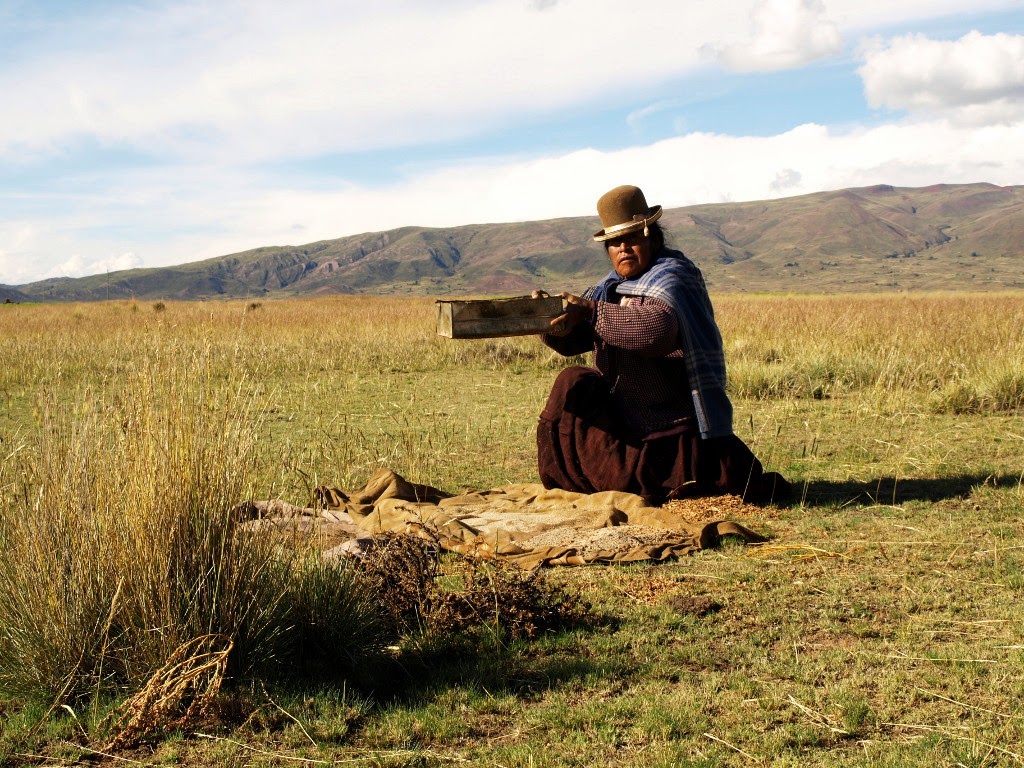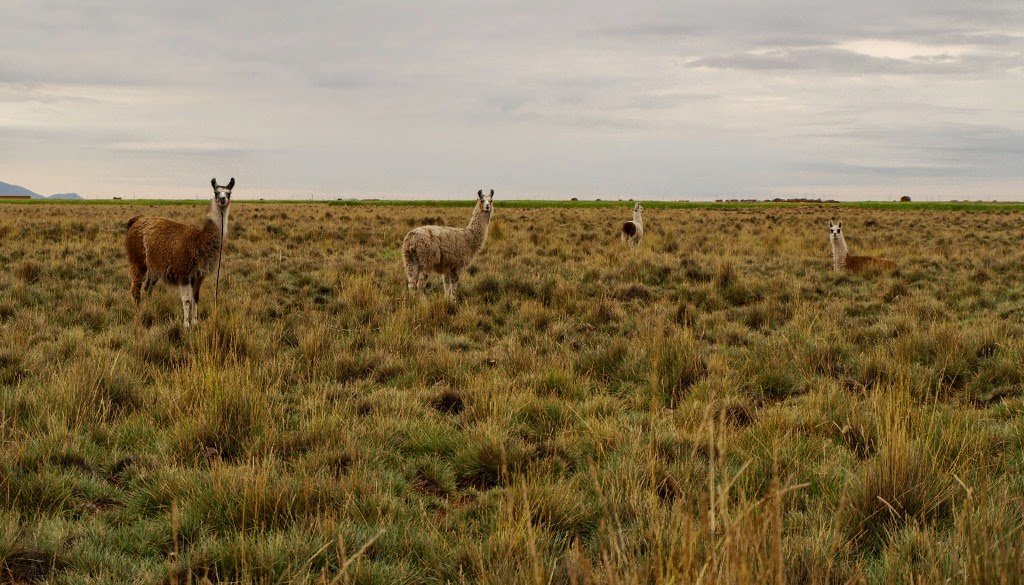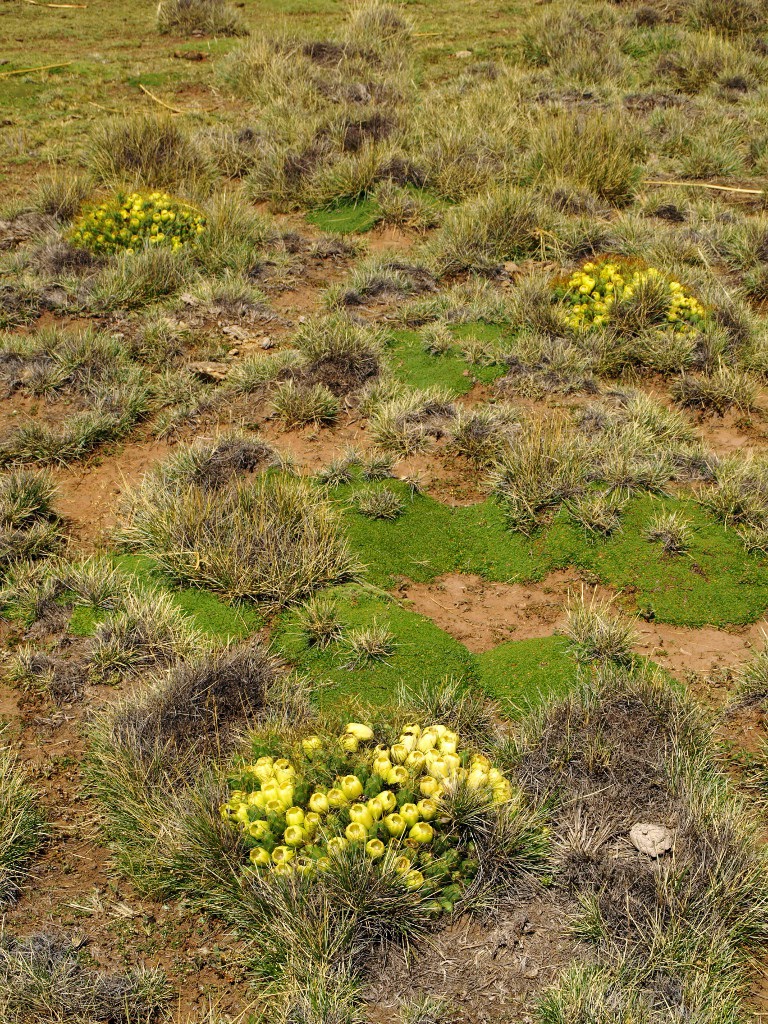The last two weeks I (Andrés) have been away for a few days interviewing cañahua producers in the Ingavi province. The farmers are mainly subsistence farmers. PROINPA, the foundation I am colaborating with here in Bolivia, is helping the farmers to produce more and better and sell cañahua directly to a company, so they can improve their livelihoods.
PROINPA is distributing seeds from a variety called Illimani (the orange coloured above), but the producers still grow the traditional local varieties, like the red shown above to the right, or the yellow below to the left. Some still grow in the traditional manner, that is with a mixture of varieties (below to the right), in order to assure the harvest, as each variety is more sensitive and more resistant to different factors. So however the weather, soil conditions or plagues are, at least one of the varieties will perform well. Even though this technique is clever enough, it makes it difficult for commercialization and is normally abandoned.
The harvest is manual as well as all the different processes to finally obtain the clean seeds. It is a lot of work that often is not well paid. Therefore many farmers cultivated the plant only for self consumption. However, now more and more farmers are engaging in the cañahua production as the price is increasing and they are getting organically certified, thanks to PROINPA, so they can sell directly to a company and obtain a better price.
Until now the little but main income of these communities was livestock, though maybe in a few years cañahua will become an important income of these farmers, so they can improve their livelihoods. The Aymara people are very nice and hospitable, and they will often share their food with you.
In the fallow lands you can sometimes find these cactus with their yellow edible fruits.








No comments:
Post a Comment